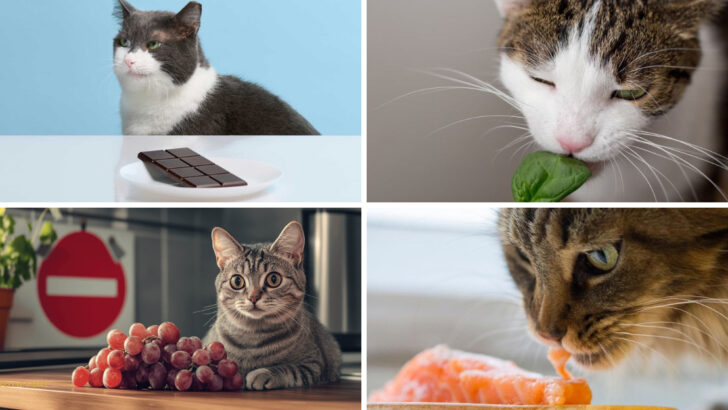Some foods are feline gold. Others? Absolute stomach sabotage.
One wrong bite can leave your cat feeling miserable—or worse. While you might think a little nibble of your dinner is harmless, some human foods are like tiny culinary landmines for your whiskered companion.
On the flip side, the right bites can boost mood, energy, and even that sleek fur coat. It’s not just about avoiding the bad—it’s about knowing the good and serving it up with confidence.
So, before you slide a snack under the table, let’s break down what’s purr-worthy and what should never cross their bowl. Your cat’s health depends on it—and they’re watching. Always.
Chocolate
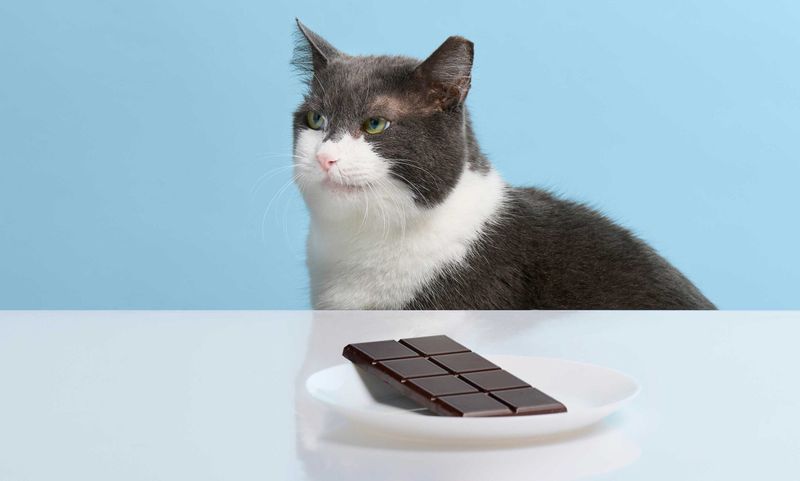
Chocolate, though a delightful treat for humans, is toxic to cats. Theobromine, a key ingredient, can cause various symptoms in felines. From vomiting to rapid heart rate, the effects can be severe.
Even a small amount can lead to serious health issues. Never leave chocolate unattended around your kitty. It’s better to keep chocolate completely out of reach.
If you suspect ingestion, contact your vet immediately. It’s always better to be safe than sorry. Keeping chocolate away is a simple step to ensure your cat’s well-being.
Raw Eggs
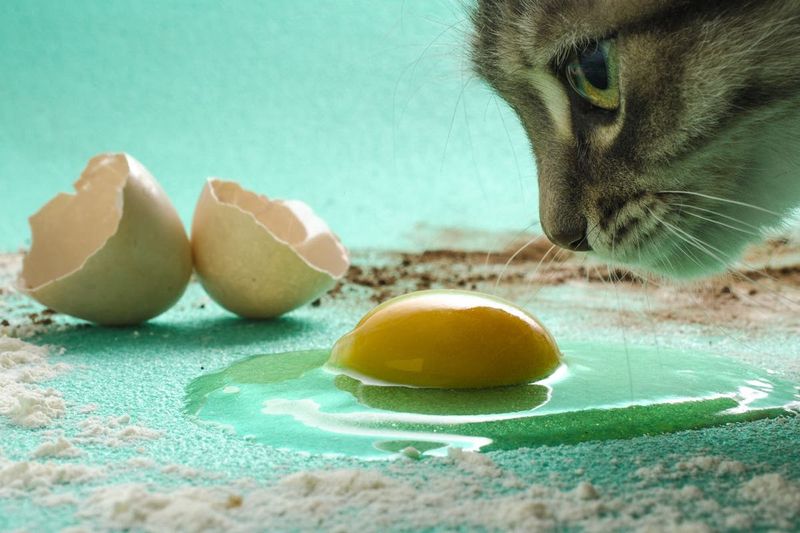
Raw eggs can pose a salmonella risk to cats, just as they do to humans. The bacteria can lead to symptoms like vomiting and diarrhea. Moreover, raw egg whites contain avidin. This protein can hinder biotin absorption, essential for your cat’s healthy skin and coat.
Cooking eggs neutralizes these risks, making them a safe protein source. Always ensure eggs are well-cooked before serving them to your feline friend.
While eggs are nutritious, raw ones can pose unnecessary risks. Opt for cooked alternatives to keep your cat safe and healthy.
Onions and Garlic
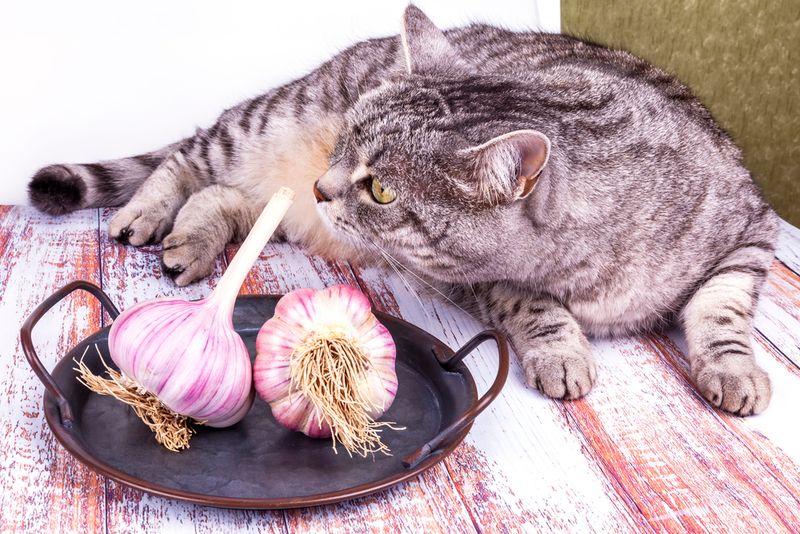
Onions and garlic, whether raw, cooked, or powdered, are harmful to cats. They contain compounds that can damage red blood cells. Over time, this can lead to anemia, a serious condition requiring veterinary care.
Even small amounts can be toxic. Symptoms include lethargy, weakness, and reduced appetite. It’s crucial to keep these ingredients away from your cat’s reach.
Be cautious when cooking and storing foods containing onions or garlic. Ensuring your cat’s safety means avoiding these ingredients entirely in their diet.
Grapes and Raisins
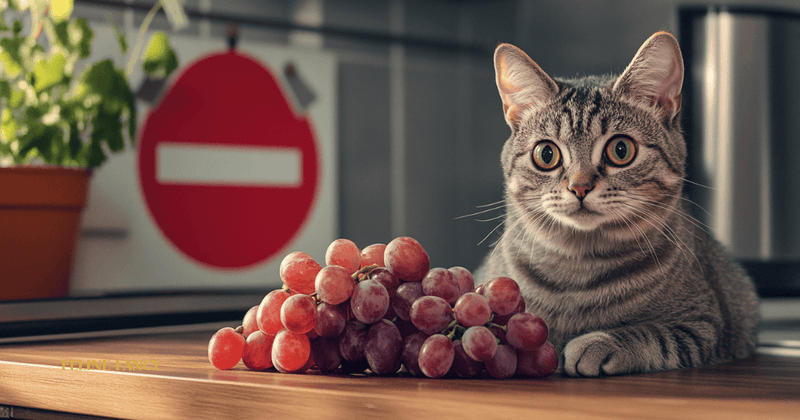
Grapes and raisins might seem harmless, but they can cause kidney failure in cats. The exact toxic substance is unknown, but ingestion can lead to serious health issues.
Early signs include vomiting and lethargy. If untreated, it can progress to severe kidney damage. Always err on the side of caution and keep these fruits away from your cat.
It’s better to avoid feeding them as treats and ensure they are stored securely. Protecting your cat from potential dangers is as simple as keeping grapes and raisins out of reach.
Alcohol
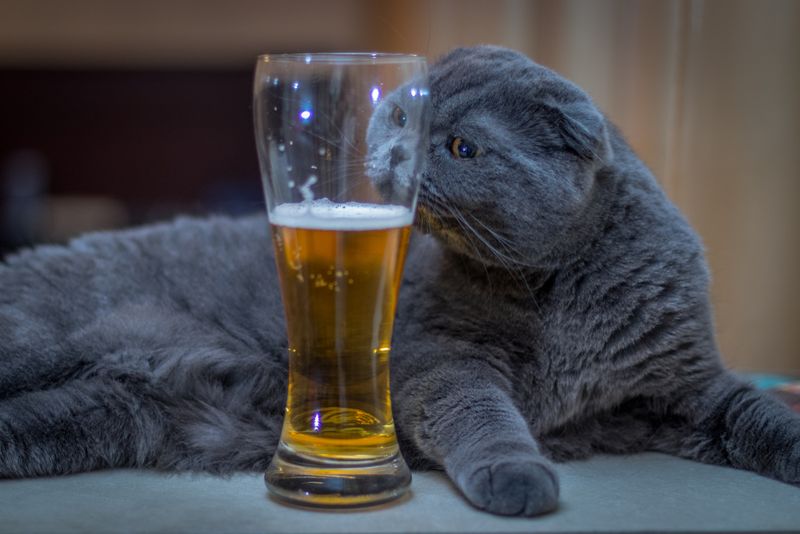
Alcohol can be extremely dangerous for cats. Even small quantities can lead to ethanol poisoning, causing symptoms like vomiting, disorientation, and in severe cases, respiratory failure.
Cats are much smaller and more sensitive to alcohol than humans, making them more susceptible to its effects. It’s crucial to clean up any spills immediately.
Ensure alcoholic beverages and products are stored safely out of your cat’s reach. By doing so, you protect them from potential harm and ensure a safer living environment.
Caffeine

Caffeine, a common stimulant in coffee, tea, and energy drinks, poses significant threats to cats. When ingested, it can lead to restlessness, rapid breathing, and heart palpitations.
Cats are particularly sensitive to caffeine because they metabolize substances differently from humans. Always ensure caffeinated products are out of your cat’s reach.
In case of accidental ingestion, immediate veterinary attention is crucial. Preventing your cat from accessing caffeinated items is key to maintaining their health and well-being.
Xylitol
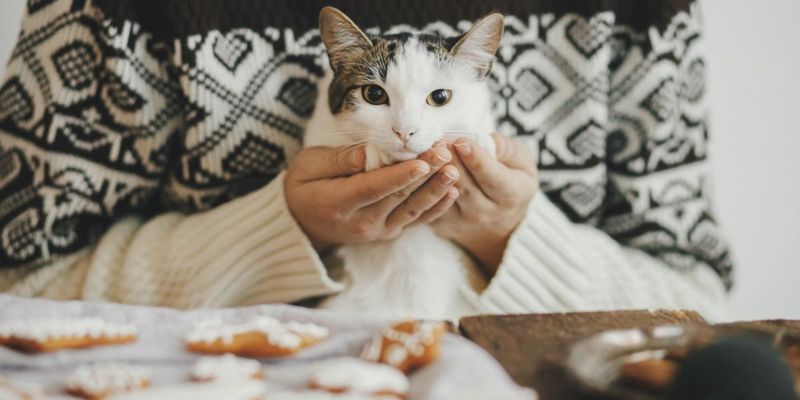
Xylitol, a sugar substitute found in many sugar-free products, is toxic to cats. It can lead to a rapid insulin release, causing hypoglycemia. Symptoms include lethargy, vomiting, and loss of coordination.
Even small amounts can be dangerous. If you keep xylitol-containing products, ensure they’re stored far from your feline friend.
Being vigilant about what your cat can access prevents accidental ingestion. When it comes to xylitol, keeping it completely out of reach is the safest option.
Cooked Bones
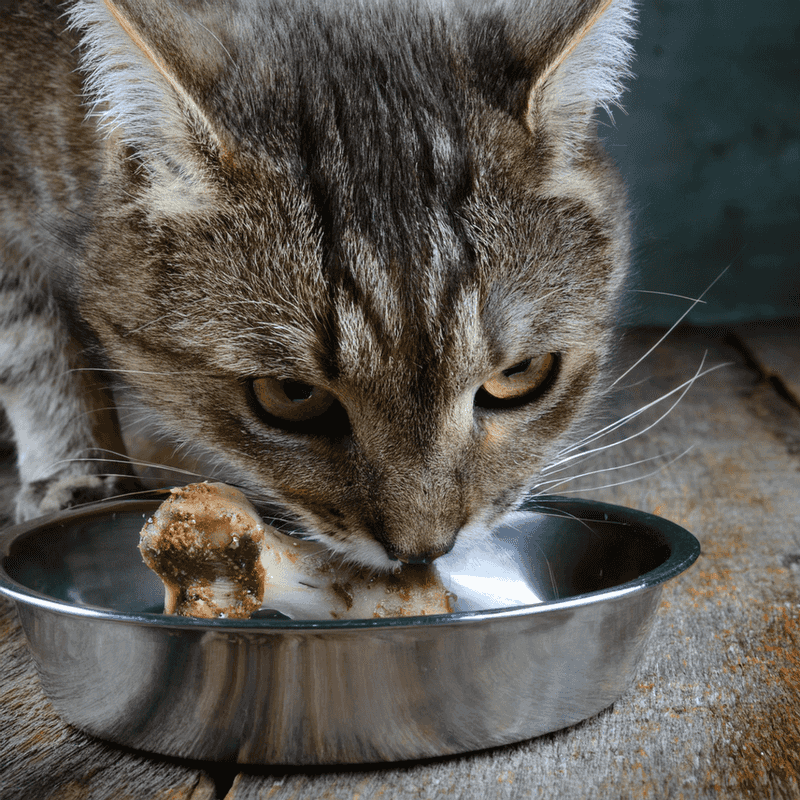
Cooked bones, unlike raw ones, can splinter easily, posing a choking hazard to cats. They can cause internal injuries or blockages in the digestive tract.
While it may seem natural to give a cat a bone, it’s best to avoid cooked varieties. Opt for safe alternatives or specialized cat treats.
Ensuring your cat’s safety involves mindful feeding practices. Providing safe and appropriate options helps prevent potential health risks associated with cooked bones.
Cooked Chicken
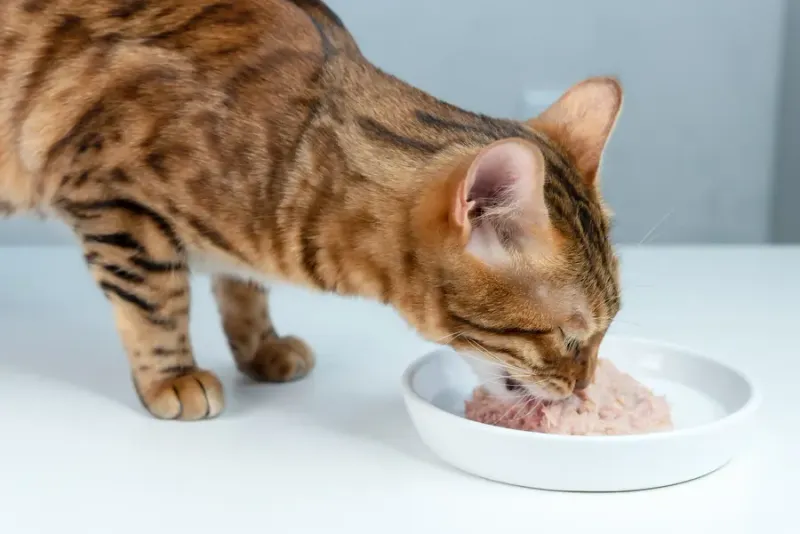
Cooked chicken is a fantastic source of lean protein for cats. Rich in essential amino acids, it supports muscle maintenance and overall health.
Unlike raw chicken, cooking eliminates bacteria like salmonella, making it a safe addition to your cat’s diet. Serve it plain, without spices or seasoning, to avoid any digestive upset.
Integrating cooked chicken into meals offers nutritional benefits and variety. It’s a simple way to enhance your cat’s diet and keep them satisfied.
Salmon
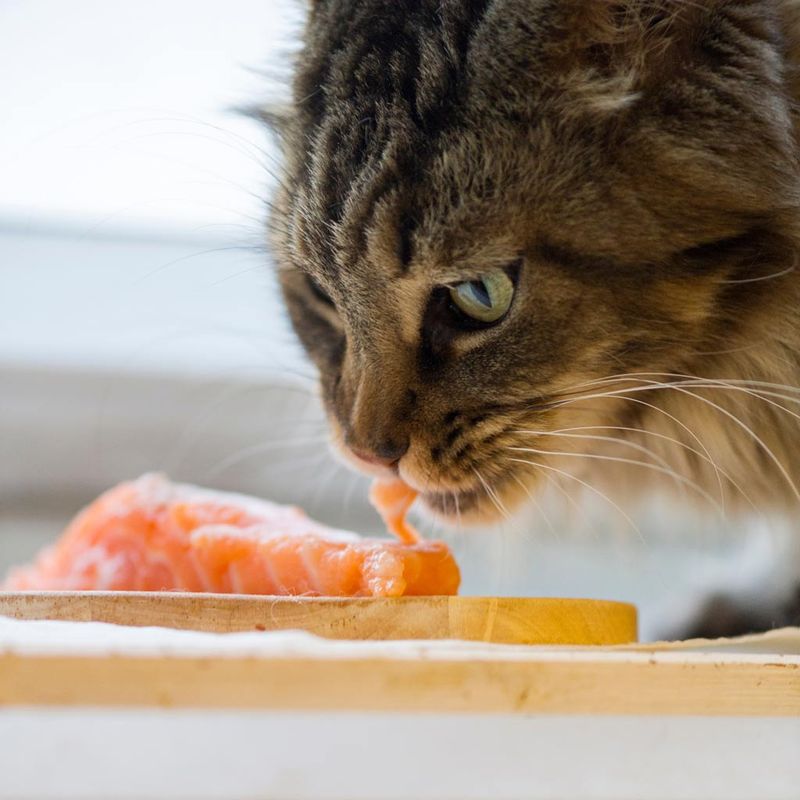
Salmon is a powerhouse of nutrition for cats. It’s packed with omega-3 fatty acids, promoting healthy skin and a shiny coat. These beneficial fats also support joint health and provide anti-inflammatory benefits.
Ensure the salmon is cooked thoroughly, as raw fish can contain parasites. Avoid seasoning to keep it safe for your feline friend.
Adding salmon to your cat’s diet can enhance their overall health. It’s a delicious and nutritious treat that satisfies their taste buds and dietary needs.
Blueberries
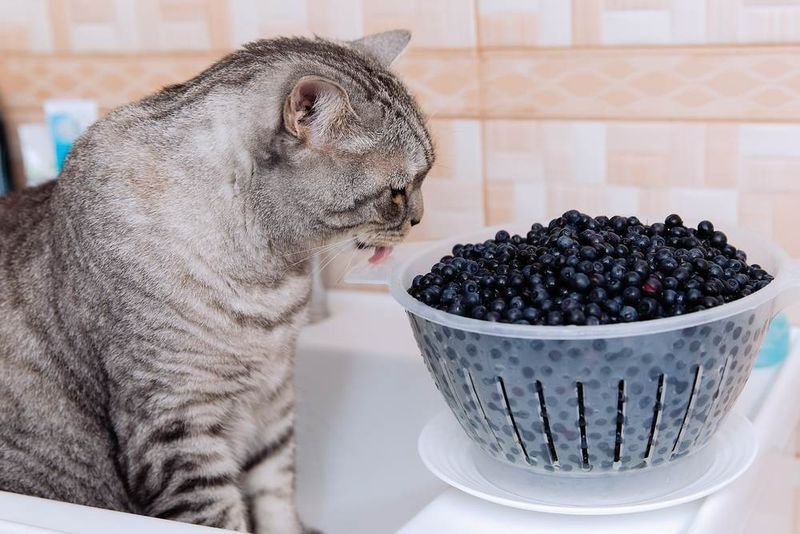
Blueberries are a delightful treat for cats, rich in antioxidants and vitamins. They support immune health and provide essential nutrients for overall well-being.
Cats typically enjoy their sweet taste and soft texture. These berries can be served fresh or frozen, making them a versatile snack.
Incorporating blueberries into your cat’s diet offers health benefits and a flavor boost. These little powerhouses of nutrition can be an exciting addition to their mealtime routine.
Pumpkin
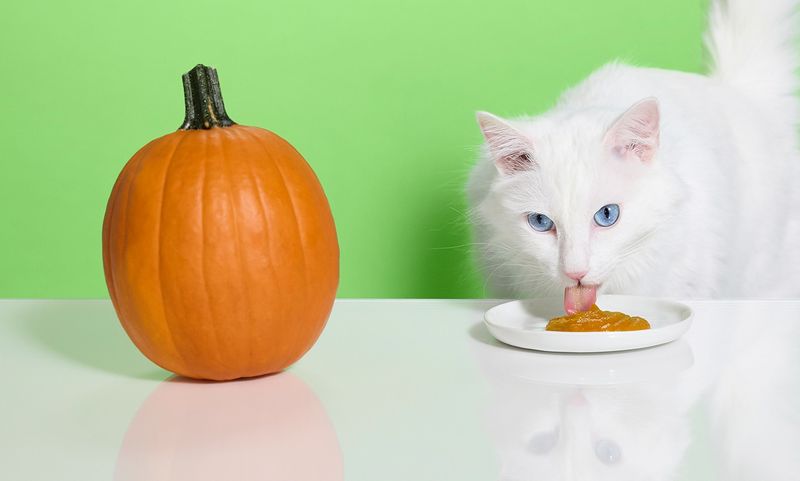
Pumpkin is a fantastic dietary addition for cats, especially for digestive health. Its high fiber content aids in resolving constipation and diarrhea.
Pumpkin is also rich in vitamins and minerals, supporting overall health. Serve it cooked and plain, avoiding spices or additives.
Including pumpkin in your cat’s diet can lead to improved digestive function and overall wellness. It’s a simple and wholesome food that benefits your feline friend.
Carrots
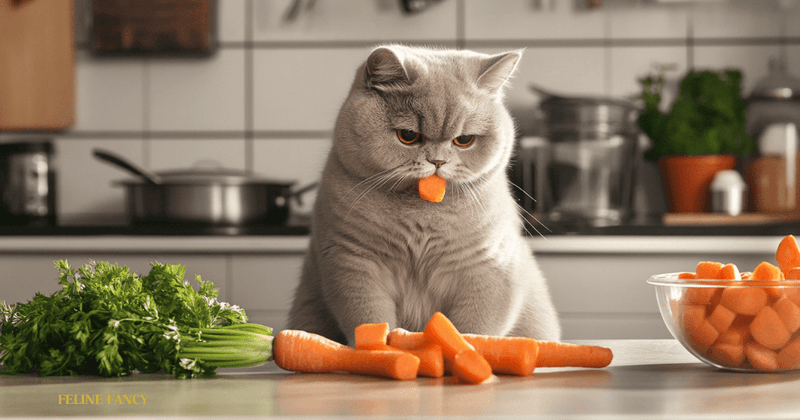
Carrots are more than just a crunchy treat; they offer numerous health benefits for cats. Rich in beta-carotene, they promote eye health and a robust immune system.
Serve carrots cooked to ease digestion and avoid any choking hazards. Their natural sweetness often appeals to cats.
Adding carrots to your cat’s diet is an excellent way to boost nutrition. They offer a tasty and healthy addition that supports overall well-being.
Spinach
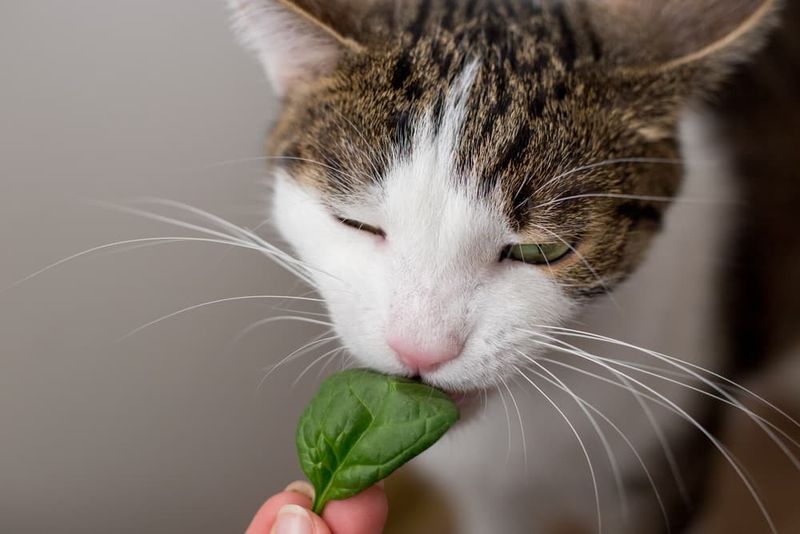
Spinach is a nutrient-rich food beneficial for cats. Packed with vitamins and minerals, it supports overall health and vitality. The leafy greens are high in iron and calcium, essential for strong bones and muscle function.
Cats may enjoy the texture and fresh taste of spinach leaves. Serve them lightly steamed to retain nutrients and enhance digestibility.
Incorporating spinach into meals offers a nutritious boost. It’s a simple way to diversify your cat’s diet and promote health.
Chicken Liver
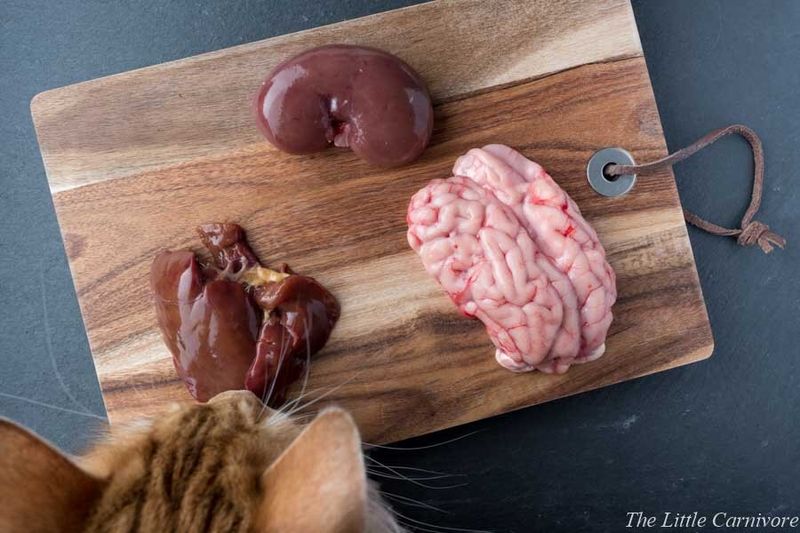
Chicken liver is a nutrient-dense food for cats, rich in vitamins A and B. It supports eye health, energy levels, and overall vitality.
Cook the liver to eliminate any potential bacteria, serving it plain for your cat to enjoy. Limit servings to avoid vitamin A toxicity.
Including chicken liver in your cat’s diet provides essential nutrients and variety. It’s a flavorful and beneficial treat that contributes to their health and happiness.
Oats

Oats are a wholesome grain option for cats, offering fiber and essential nutrients. They support digestive health and provide sustained energy.
Cooking oats makes them easier for cats to digest, ensuring they can enjoy the benefits without any discomfort. Serve them plain, without sweeteners or milk.
Incorporating oats into your cat’s meals adds nutritional value and variety. It’s a beneficial addition that complements other protein sources in their diet.

